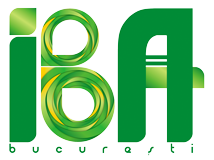Context and Motivation
On July 15, 2025, the Danish Environmental Protection Agency (Miljøstyrelsen) decided to withdraw the authorization for 23 pesticides containing per- and polyfluoroalkyl substances (PFAS), also known as "forever chemicals" due to their environmental persistence. This move reflects a growing concern about groundwater contamination and raises awareness of the associated nutritional and health risks.
Targeted Active Substances
The decision specifically targets six active ingredients:
- fluazinam
- fluopyram
- diflufenican
- mefentrifluconazole
- tau-fluvalinate
- flonicamid
These compounds can degrade into trifluoroacetic acid (TFA), a PFAS by-product with high mobility and toxicity for both the environment and human health.
Legal and Scientific Basis
Denmark’s decision aligns with Regulation (EU) 1107/2009, which limits the presence of TFA in groundwater to 0.1 µg/L. The “TriFluPest” study, conducted by GEUS (The Geological Survey of Denmark and Greenland), demonstrated that the analyzed substances generate significant levels of TFA under normal agricultural conditions.
Impact on Agriculture and Health
TFA contamination affects drinking water reserves, as well as soil and agricultural products (such as wine and cereals). Related studies associate chronic exposure to PFAS with:
cancer cases
reproductive dysfunction
other health disorders
Additionally, agricultural producers have expressed concern over the potential impact on starch potato crops – widely used in the food industry.
Withdrawal Timeline and Next Steps
The implementation of the ban will be gradual:
Products without available alternatives will be phased out within 15 months.
Other products with identified substitutes will be withdrawn within 6 months (2 months to halt sales + 4 months for use).
Moreover, 10 additional pesticides are currently under evaluation, with a decision expected in the fall of 2025.
Denmark – A Model for the EU
The political and media response was swift:
NGOs such as PAN Europe and SAFE Food Advocacy welcomed the decision, calling it “a model for all Member States.”
Green MEPs urged the inclusion of TFA levels in EU regulations, emphasizing the need for a comprehensive review at the community level.
Although the European Union has not yet adopted a coordinated ban on PFAS in agriculture, Denmark’s initiative exerts pressure for accelerated reform.
Conclusion
Denmark’s ban represents a concrete application of the precautionary principle—avoiding the introduction or continuation of substances with serious contamination potential. The blocking of PFAS/TFA pesticides not only protects water quality and public health but also establishes a model of eco-responsible regulation.
As further evaluations are concluded in the fall of 2025 and EU-wide attention increases, Denmark may become the catalyst for stricter legislation on PFAS in agriculture.
Source AFFIDIA JOURNAL.

